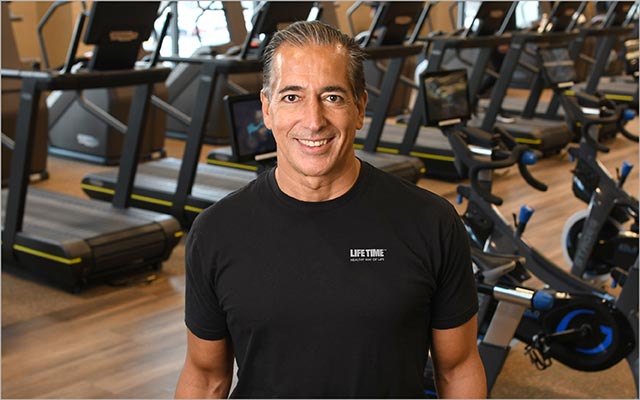Over the years, I’ve been asked in various circumstances to pick just one word that deeply resonates with me — and it proved difficult. How do you choose one from the millions that surround us?
I admire the ones that define principles, like “integrity” and “excellence,” or others, like “passion,” “alignment,” and “benevolence,” that so simply explain our values and who we are and what we do.
These past several months, it’s become increasingly clear that if I had to pick one, it would be “balance,” mainly because, at this moment, things feel so imbalanced — politically, socially, financially, environmentally, emotionally. Upon closer inspection, there are situations in which we, as both individuals and a collective, have never achieved balance at all or have lost it completely.
We witness it daily in the extremes: Financially, there are those who spend everything they have, living the high life, with no protective nest egg. Something happens, and it’s a disaster.
Others are so tight, living as misers, that they enjoy none of the rewards they’ve worked hard to earn.
Politically, people tilt so far to the right, so far to the left, that they struggle. Relationships can turn tense, and their views can become a source of friction, undoubtedly leading to discontent and unhappiness.
Imbalance also sneaks up in multiple ways: as stress when we prioritize other people’s needs ahead of our own, or when technology tethers us to the office 24/7, endangering our “work–life balance.” We can feel it in the moment as we scan our social media, comparing ourselves with others — who’s done what, who has more.
Balance is oftentimes absent when it comes to health: Some disregard their diet, consuming sugar, alcohol, additives, and preservatives with an attitude of nonchalance. The effects may catch up to them in the form of some sort of health issue — a diagnosis of diabetes or a cardiac event that can change or end their lives quickly.
Some go to the other extreme, so rigid and conscientious about everything they consume that they enjoy nothing. This has its own negative implications, since it causes stress (and subsequently, inflammation) as they worry about doing things just right.
The common denominator that emerges from imbalance is suffering, starting with the individual, then affecting those close to them, and later spreading to the whole community.
Perhaps if we took the time to seek balance, the world wouldn’t feel like it’s often spinning slightly off its axis.
A good place to begin is by defining “balance” itself. My slightly abridged version is that it’s equilibrium, or a state in which opposing forces harmonize; it’s wholeness, a state of calmness, and awareness of multiple viewpoints.
So how do you pursue your own equilibrium, a healthy center, an improved state of being?
It starts by consciously seeking the middle: devoting time and energy to calmly, respectfully, and sincerely analyze other perspectives. Dig in a little, listen, and discover as you perform what’s ultimately an inventory to collect relevant data and information regarding the given situation or issue.
Put yourself in other people’s shoes. Look for the positive. Try to find the good. You will probably find that there are some elements of what they believe that make sense to you.
This allows you to come up with a set of principles that embody both sides, ultimately finding your definition of center in that situation, which is so necessary in this disparate world.
The hope is you’ll soon be able to expand your awareness of the world’s current misalignments: the inequality that still exists with how we treat people, the crisis in our environment, and the radical divisions in rich versus poor, Republican versus Democrat, “us” versus “them.” As minds open, doors open, creating harmony for this world.
Life is balance. We all carry it within us: highs and lows, successes and failures, light and darkness. It’s being served and serving, taking and giving.
We crave solitude but need others. We follow our gut to make quick, intuitive decisions, then sit and contemplate complicated ones. We know joy because we all, at some time or another, know sorrow.
Intentionally committing to learning about all sides of a topic or situation can help us find a more centered perspective, and it’s through seeking and finding the balance that we can improve multiple aspects of our lives.





This Post Has 0 Comments